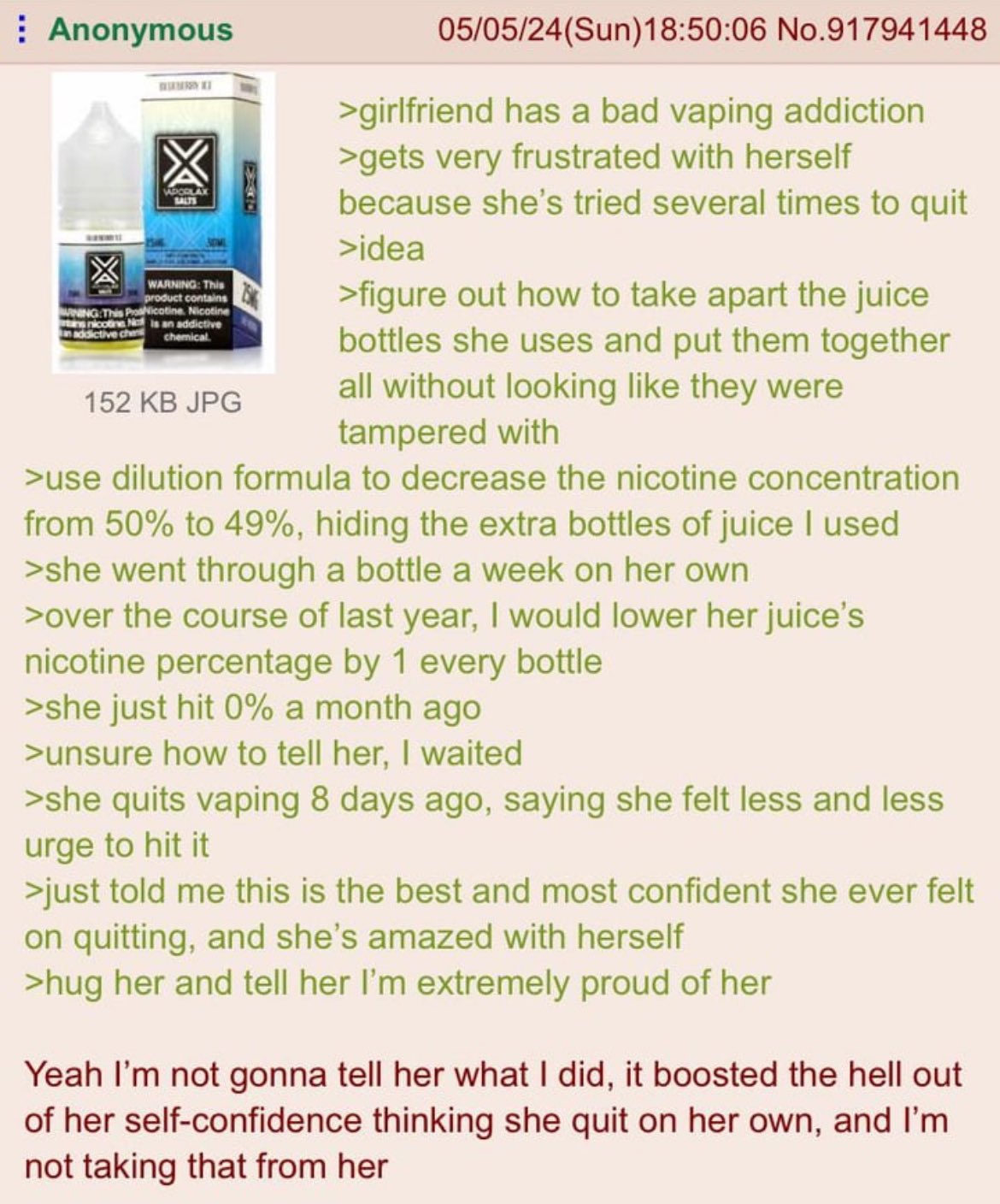this post was submitted on 20 May 2024
1234 points (97.2% liked)
Greentext
5996 readers
1783 users here now
This is a place to share greentexts and witness the confounding life of Anon. If you're new to the Greentext community, think of it as a sort of zoo with Anon as the main attraction.
Be warned:
- Anon is often crazy.
- Anon is often depressed.
- Anon frequently shares thoughts that are immature, offensive, or incomprehensible.
If you find yourself getting angry (or god forbid, agreeing) with something Anon has said, you might be doing it wrong.
founded 2 years ago
MODERATORS
you are viewing a single comment's thread
view the rest of the comments
view the rest of the comments

Good intentions, implementation, and results here, but seriously folks, think VERY carefully about what you're doing when you tamper with something someone's putting in their body.
Do not try at home to the nth degree.
yeah using some random "cutting solution" is how you end up with Honey Cut 2.0
Just as a thought experiment, what you'd really wanna do is change the salt nic formulation, i.e. the acidic compound which is added to freebase nicotine to convert it to a salt. This directly shapes the pharmacokinetics of the resulting nicotinic effect from vaping it, which is what leads to the common knowledge that salt nic hits harder, but doesn't last as long as freebase. That isn't universally true at all, but is a result of the salt formulations that are popular in the market.
I worked with a scientist that once formulated a 20mg/mL solution for me that had similar throat hit to the 40mg/mL products I was using & had a very steep onset curve, and I found it to still be very satisfying even immediately after swapping. It wasn't a successful product though because for the consumer, 20mg = 20mg & 40mg = 40mg
Guess my point is that the novel ways of using tech to improve weaning off nicotine using vaping do legitimately exist, but they don't have a place in a free market so we won't have it while regulators stay luddites on the issue
That's when you take a page out of the book of lightbulb manufacturers. On the box, CFLs and LEDs don't show their actual wattage on the front, they write "100w equivalent" because that's how people are used to measuring luminosity.
I find it changing as of lately, as "W equivalent", lumens, and actual Watts get printed on the bulbs' package more often, sometimes even pulsation score or something. This really helps because actual Watts and lumens are quite independent now
Yeah exactly, but to get to that point we needed to message it to consumers as such for ~20 years. Similarly, in OPs example, the 20mg feels similarly to a 40mg, but with half the nicotine - clearly the measurement on the box is being used as a proxy for "how does this feel" (no clue if that has a measurement/is measureable) but could definitely message it similarly